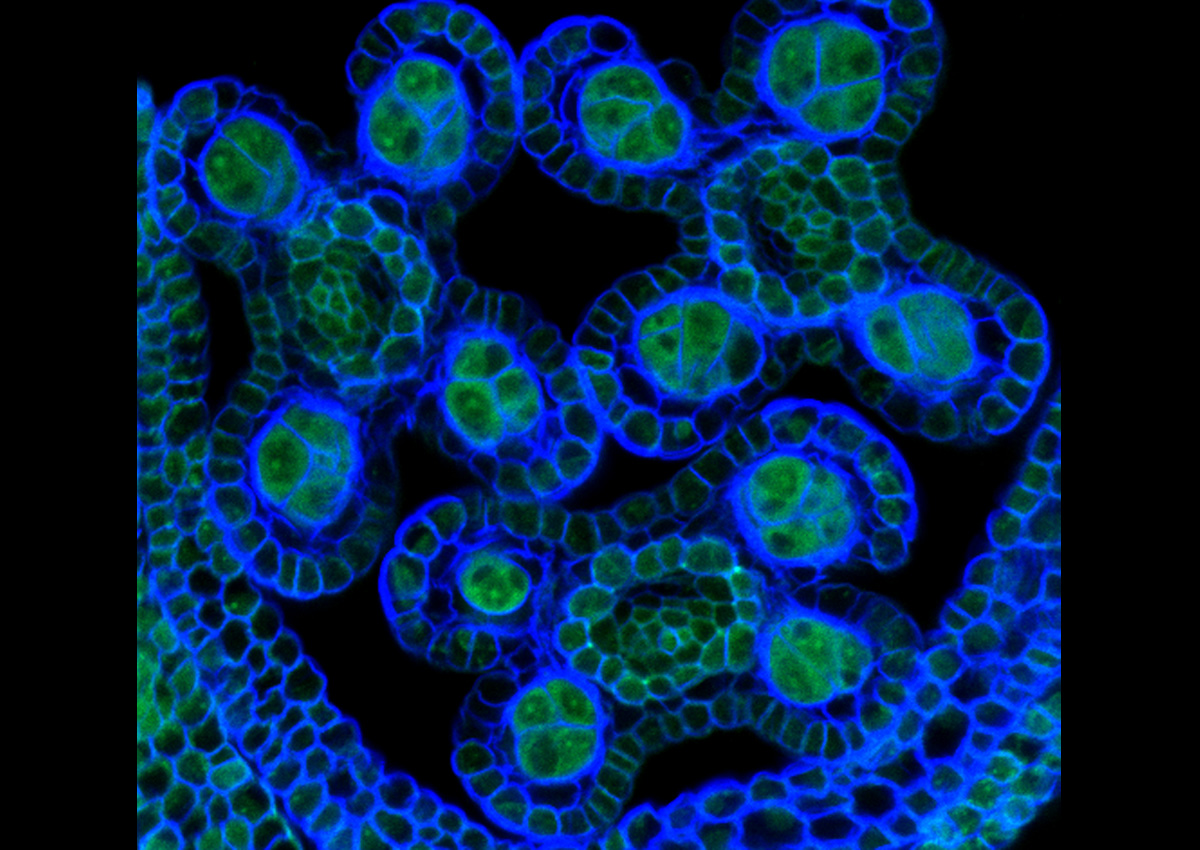
Researchers Identify Mechanism that Protects Plant Fertility from Stress
March 3, 2021| |
Temperatures rise due to global warming and the need to protect crops from extremely stressful conditions has increased. A University of Warwick-led consortium has successfully identified two proteins that protect crops from stress, which is key in safeguarding food production.
Researchers from the School of Life Sciences at the University of Warwick studied the molecular mechanisms that maize plants use to safeguard fertility under high temperatures and identified two Argonaute-like (AGO) proteins that protect the male sex cells. The researchers subjected maize plants with non-functional AGO proteins to different growth conditions and discovered that a 5°C increase in ambient temperature dramatically decreased male fertility.
Using a multidisciplinary approach, the team found that higher temperatures activated small pieces of ribonucleic acid (or small RNAs) in wild-type plants, binding to these AGO proteins to control the activity of stress-activated jumping genes, which are pieces of DNA that can copy themselves into different parts of the genome. Therefore, these AGO proteins control the activity of jumping-genes and protect plant fertility.
For more details, read the article in Warwick News and Events.
| |
You might also like:
- How do Plants Fight Bacterial Infection?
- Micro RNA's Role in Stem Cell Determination
- Turning Sexually Reproducing Plant to Asexual Reproduction
Biotech Updates is a weekly newsletter of ISAAA, a not-for-profit organization. It is distributed for free to over 22,000 subscribers worldwide to inform them about the key developments in biosciences, especially in biotechnology. Your support will help us in our mission to feed the world with knowledge. You can help by donating as little as $10.
-
See more articles:
-
News from Around the World
- FAO DG Outlines "Four Betters" as Strategy to Transform Agri-food Systems
- ISAAA Report Summary Now Available in Indonesian, Chinese, Thai, and Vietnamese
- Science-based Ag-biotech Curriculum Developed for Middle, High School Students in the US
- Wheat's 'Second Genome' Could Help in the Plant's Survival against Environmental Stress
- Study Reveals Plant Clock Key to Producing More Food for the World
- Asian Biotechnology Information Centers Pledge to Advance Biosciences
- Researchers Identify Mechanism that Protects Plant Fertility from Stress
-
Research Highlights
- NtCIPK11 Confers Salt and Drought Tolerance in Arabidopsis
-
Plant
- CRISPR-Cas9 Could Provide the Much-needed Help on Food Security against Climate Change
- UK Scientists Develop Genome-edited Wheat to Reduce Cancer Risk from Bread
- Researchers Invent New Gene Editing Tool
-
Health
- Survey Shows People with Low Scientific Reasoning Tend to Believe Conspiracy Theories on COVID-19
-
Read the latest: - Biotech Updates (February 11, 2026)
- Gene Editing Supplement (January 28, 2026)
- Gene Drive Supplement (February 22, 2023)
-
Subscribe to BU: - Share
- Tweet

